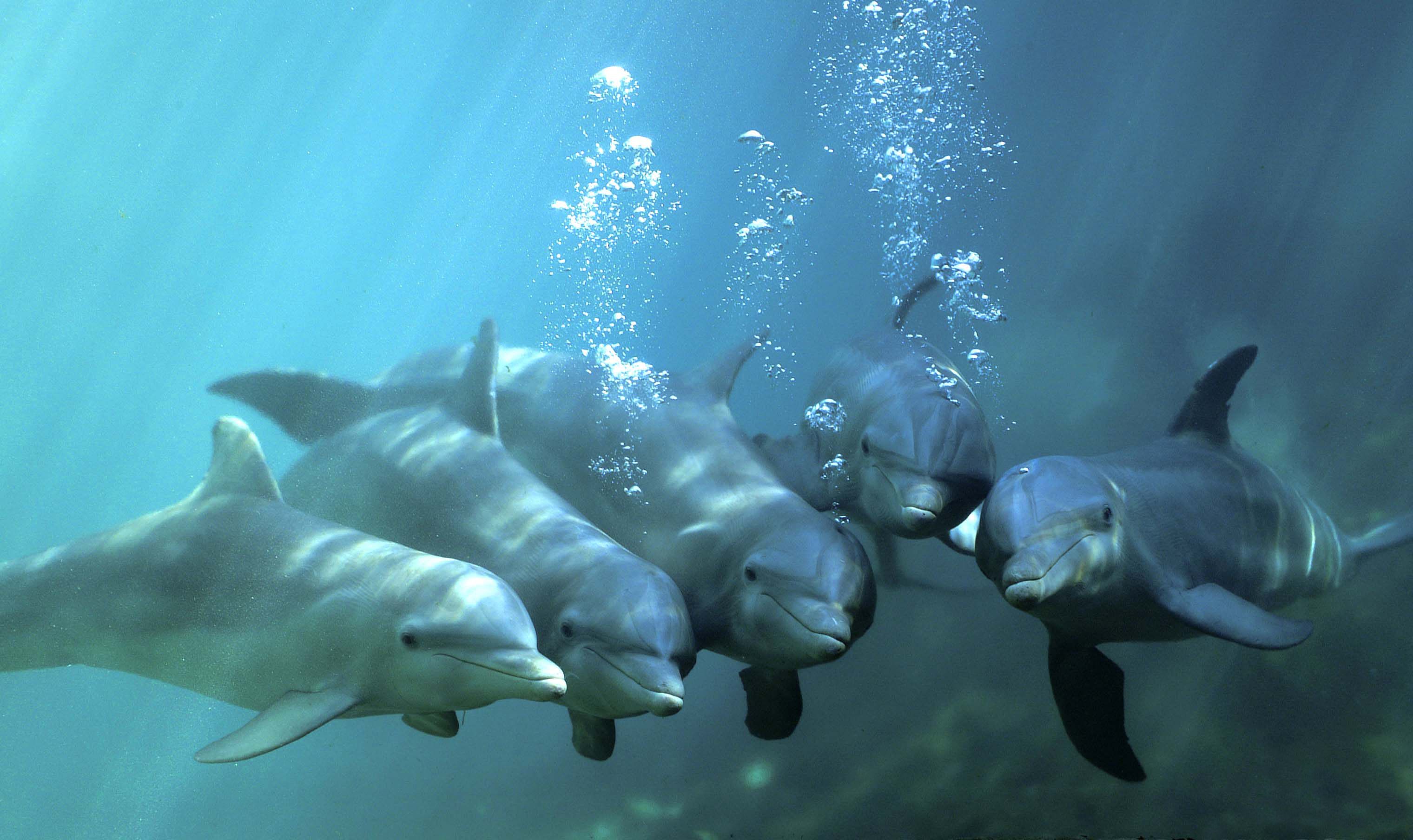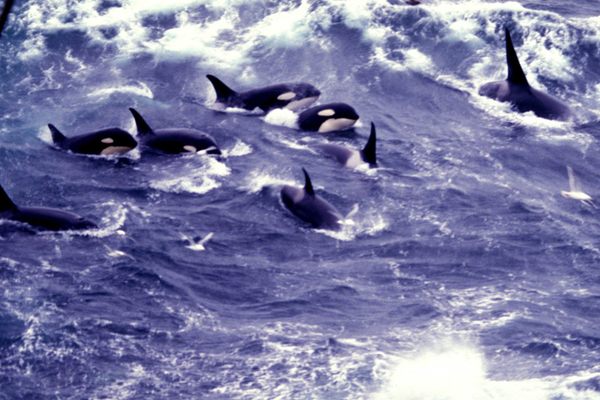Whale and Dolphin Cultures Are Products of Big Brains
More grey matter means more complex social interactions.

Humans wouldn’t be where we are today if not for our brains. Relative to our bodies, our noggins are exceptionally large. Scientists say we evolved our big heads to manage our complex social structures, an idea called the social brain hypothesis. Researchers have since looked at the social brain hypothesis to explain other large primate brains, along with social bird brains. And now a new study, published in Nature Ecology & Evolution, suggests that whale and dolphin brains evolved in much the same way.
A team of researchers from the United States and the United Kingdom compiled data from studies describing the body and brain sizes, social structures, and cultural behaviors of whales and dolphins. They included behaviors such as group hunting, social play, and complex vocalizations. Controlling for body size, the team found that brain size predicted how socially complex a species is, how rich their diet is, and the size of their social groups. Larger-brained species were also found across a wider range of latitudes, which probably means they’re “more ecologically flexible,” write the scientists in the report. They also note that a lot of the whale brain is devoted to auditory processing, which shows just how important social behavior and communication has been in their evolution.
Humans have managed to spread to just about every nook and cranny on Earth thanks to our brains, but don’t expect whales or dolphins to take over any time soon. “The apparent co-evolution of brains, social structure, and behavioral richness of marine mammals provides a unique and striking parallel to the large brains and hyper-sociality of humans and other primates on land,” said study coauthor Susanne Shultz in a statement. “Unfortunately, they won’t ever mimic our great metropolises and technologies because they didn’t evolve opposable thumbs.”





















Follow us on Twitter to get the latest on the world's hidden wonders.
Like us on Facebook to get the latest on the world's hidden wonders.
Follow us on Twitter Like us on Facebook